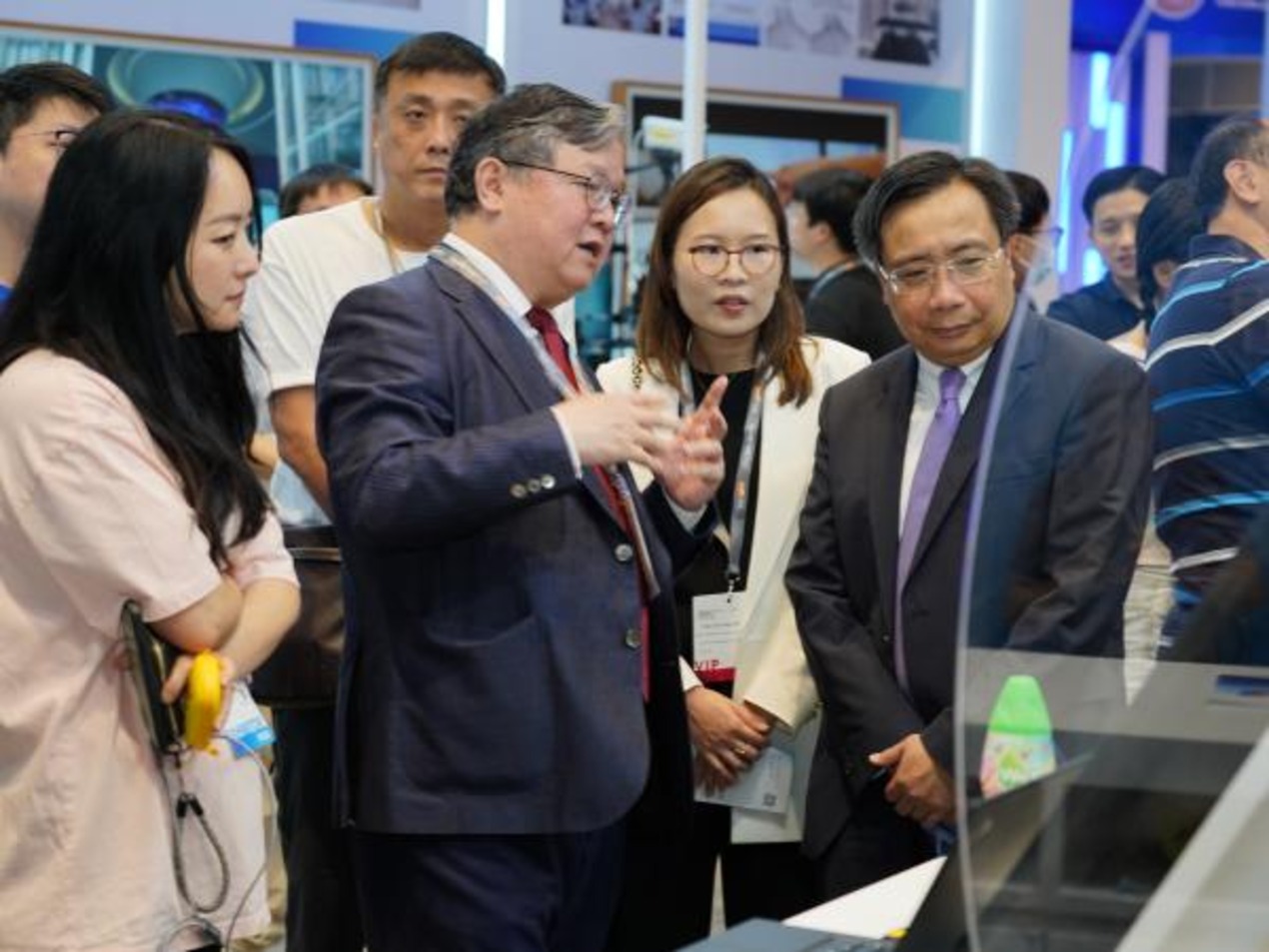
As the New Year rolls in, governments across the globe are re-assessing and reapplying technologies in new and unique ways.
This is very much the case in Hong Kong where Artificial Intelligence (AI) is being applied across sectors of the economy and within most departments in the government.
But what are the implications, and how are they significant?

OpenGov Asia sat down with Dr Andy Chun, Council Member and Convenor of the AI Specialist Group, Hong Kong Computer Society to discuss AI and its purpose and necessity in Hong Kong.
Dr Chun is a seasoned senior executive and a broad technologist with over 30 years of experience in a wide range of industries, including finance, insurance, health, transportation, and education.
He is also an honorary Adjunct Professor at the City University of Hong Kong and the Regional Director of Technology Innovation at Prudential Corp Asia.
Surging interest around AI
There is a reason for the increased focus and interest around AI. Dr Chun noted that, as a technology, AI is maturing rapidly.
“We now have a much better understanding of what problems AI can solve and how to implement AI solutions, as well as more readily available AI tools and platforms at a lower cost.”
Citizens’ expectations have also changed.; the government’s online services are expected to be on par with that of commercial corporations in terms of ease-of-use and intelligence.
Government Initiatives Around AI in Hong Kong
The use of AI to improve public services is not new; almost a decade ago, the Hong Kong Immigration Department already used AI and machine learning in their Application and Investigation Easy System (APPLIES).
APPLIES is an on-line information system for processing applications for visas, permits, travel passes, registration matters relating to births, deaths, marriage and investigation cases.
AI helps streamline workflow and automate decision-making, by acting as an augmented intelligent tool for Immigration Department staff.
More recently, the government has committed over HK$100 billion to support key innovation and technology (I&T) areas, including AI.
Tens of billions are being invested into the city’s various technology centres, such as the Hong Kong Science Park, Cyberport, and the new Hong Kong-Shenzhen Innovation and Technology Park, where AI is a key focus.
In addition, significant funding is being channelled into supporting I&T and R&D in Universities as well as enterprises and start-ups in Hong Kong.
Last year the Government established a new Smart Government Innovation Lab to explore hi-tech products such as AI and relevant technologies, including machine learning, big data analytics, cognitive systems and intelligent agent, as well as blockchain and robotics from firms, especially local start-ups.
HK Nurturing AI on Many Levels
When describing how AI is being nurtured in Hong Kong, Dr Chun highlighted the Hong Kong Jockey Club as an example; their “CoolThink@JC” program systematically teaches computational thinking and coding across primary schools in Hong Kong.
The program was developed jointly with MIT in Boston. AI is also being integrated as part of Hong Kong’s STEM education for secondary schools.
At the university level, all universities in Hong Kong now have specializations in AI, machine learning, and data analytics. In fact, Hong Kong has five universities among the world’s top 100, giving it one of the world’s highest concentrations of top-quality research universities for computing.
In addition, two of the world’s leading tech start-ups – one an AI unicorn in face recognition, and the other a drone maker – were both started by academics and students from universities in Hong Kong.
Improving HKSAR Governmental Services Related to AI
Dr Chun noted that one area in which the HKSAR Government could do more on is in the creation of related guidelines, policies, and regulations to support the growing use of AI and other advanced technologies, such as in the areas of data privacy and ethical use.
“This is not to say the Government hasn’t done much,” Dr Chun stated. “Quite the contrary – Hong Kong has already done a lot.”
For example, the Hong Kong Monetary Authority recently released high-level guidelines and principles relating to AI and governance, accountability, fairness, transparency, data privacy, etc.
The HKMA also released an extensive whitepaper “Reshaping Banking with Artificial Intelligence” to help raise awareness as well as promote adoption of AI in the banking industry.
Last year, the Hong Kong Securities and Futures Commissions (SFC) also issued guidelines on the use of AI algorithms and robo-advisors.
In 2018, the Office of the Privacy Commissioner for Personal Data released a document on “Ethical Accountability Framework for Hong Kong.” Even though a lot of groundwork has been established, this area of AI development is still an evolving topic globally.
Dr Chun noted, “I’m sure more development will continue in the coming years”.
Misconceptions Around AI
While AI is widely regarded as a revolutionary technology that makes headlines constantly across the globe, there are still misconceptions around it.
“I think the key misconception of AI is that it is somehow ‘magical’ – that is, just by using AI, it will automatically learn and solve different business challenges.”
“There is still a lot of complex engineering work and experimentation behind the use of AI,” Dr Chun explained, “Companies looking for quick short-term gains will be disappointed. AI should be a long-term R&D investment.”
Another misconception about AI is that some companies do not realize there are many types of AI. Different problems will require different AI techniques, processes, and skillsets to solve.
Improving Human Lives with AI
When asked whether AI can nurture a healthier business environment on a large scale, Dr Chun noted that AI in the form of virtual assistants, helps humans perform mundane or repetitive work, so that we can focus on more interesting as well as stimulating problems.
This reduces some of the stress in the business environment and makes work more enjoyable. Companies are also using chatbots internally for various HR functions, to improve communication and transparency as well as better employee relationships.
The Rise of Chatbots
The world, and APAC regions, in particular, have registered a rise in the deployment of chatbots. Moreover, the conversation around them changed.
Dr Chun noted that the rise in deployment of chatbots was driven mainly by advancements in natural language processing and machine learning, as well as well-understood implementation processes that make chatbot development more manageable.
In addition, with cloud services and open APIs, the costs of developing and operating chatbots have greatly reduced.
The conversation around chatbots is constantly changing. With more chatbots deployed, people’s expectations have also changed, demanding conversations to be more context-aware, stateful and human-like.
Developing Citizen/Customer-Centric Designs
Dr Chun noted that customer-centric design is really about truly understanding who your customers are, developing empathy for their needs and pains, and creating products that are highly relevant and timely, and super easy to use.
“To do customer-centric design well, industry players and government bodies need to spend more time in seeing things from the customers’ or citizens’ point of view before thinking about technology.”




















